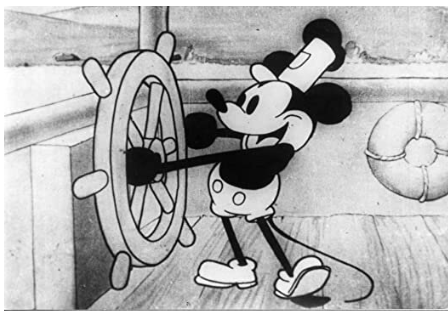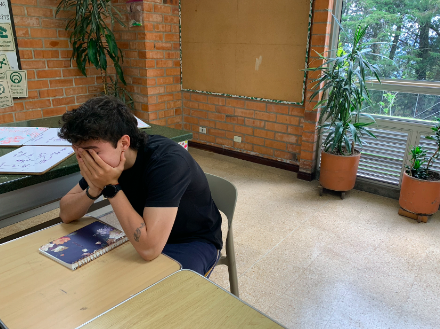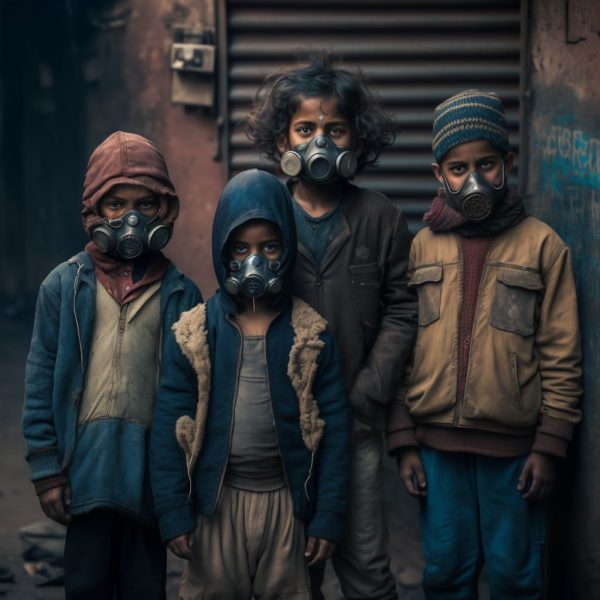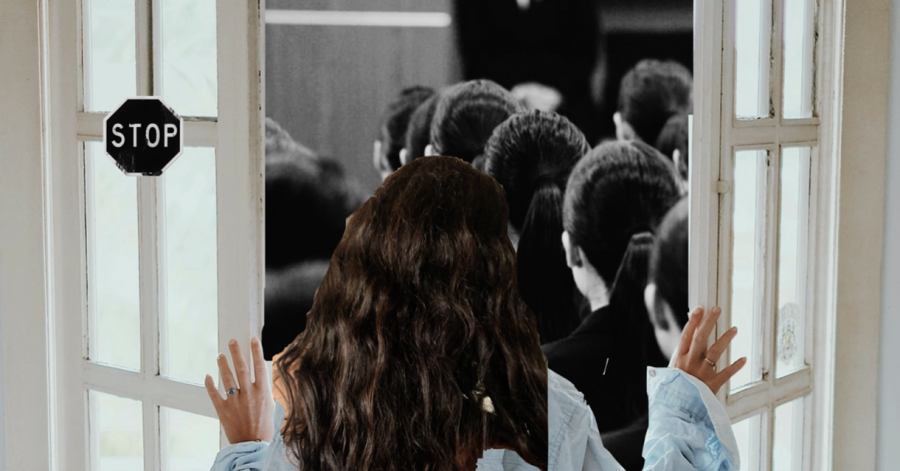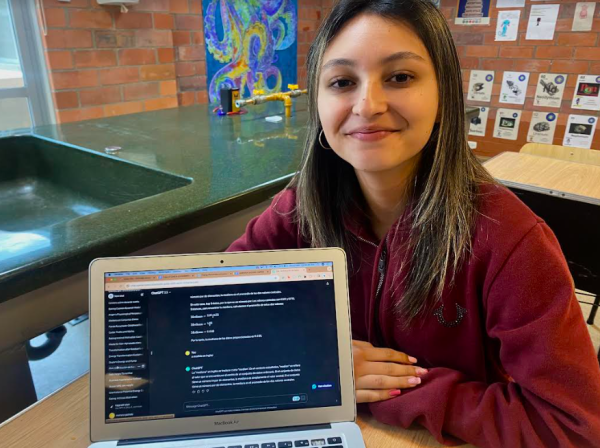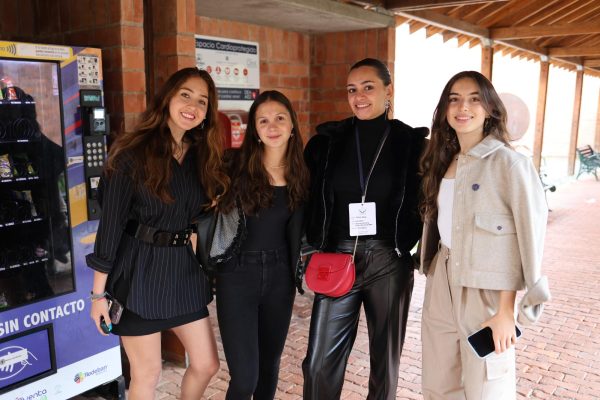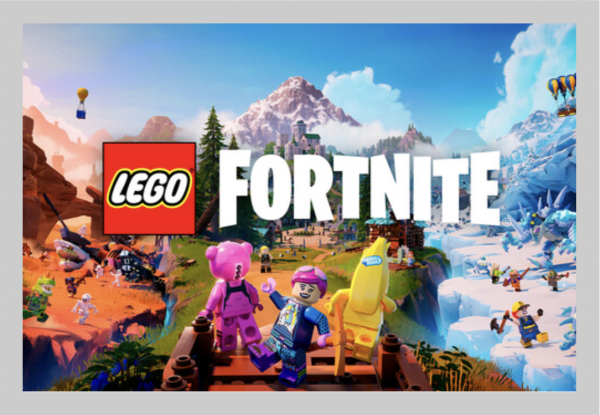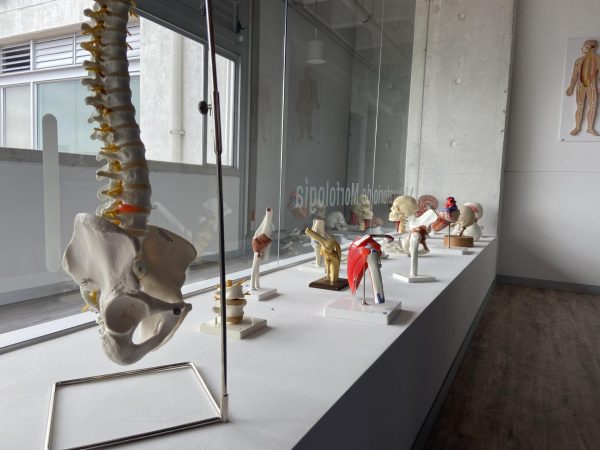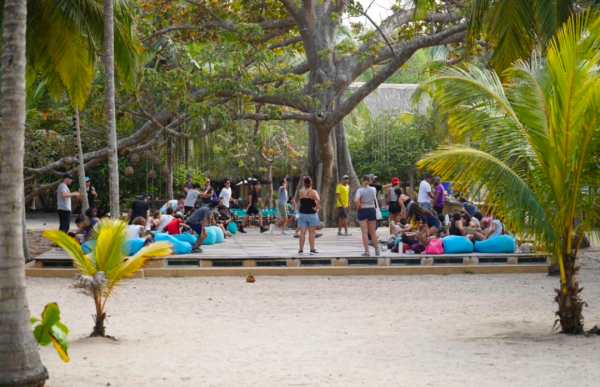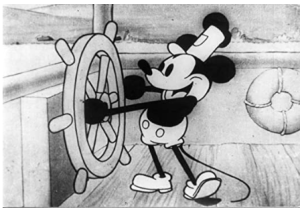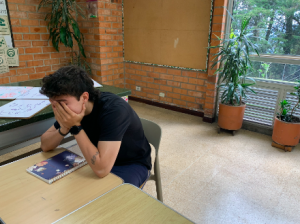Untangling Curly Hair
A curly-haired girl stops. She’s reluctant to go into the black and white world of girls who all have straight hair.
When you think of straight, you think of something even, right, aligned. When you think of curly, you think of something curved, knotty, uneven. To me, curly was one word: complicated. Like many women, I was once a slave to my hair straightener. I got burnt, used it daily for 50 minutes, and carried it around to every trip and sleepover like an extension to myself. We were practically married. You must be wondering, why so much for work for hair? Well, yes, and even though I hated straightening my hair, it was better than the alternative: curly. Why?
Whether you recognize it or not, we are all surrounded by hair daily: wash it, style it, but most importantly, we see it all over the media. It’s easy enough to open any social platform like Instagram and see the oversaturation of straight hair, and sometimes straight hair with the faintest waves (so-called “curly” by some). The same scenario replicates in other areas like ads, runways, etc., where models and celebrities like Selena Gomez showcase hair as sleek and straight as can be. Girls like me grew up watching these ads and scrolling through social media with people who didn’t have the minimal resemblance to my curly and frizzy hair. This underrepresentation extended well into Medellín as well, “In Medellín, no one has curly hair. It’s hard to find someone who has curly hair, so this has really impacted me,” Valeria Ostrovsky, curly-haired residing in Medellin, said. Not being able to relate to anyone with curly hair is burdensome in an age where role models and grown-ups influence the people who we grow to be.
We tend to want to look like the people we surround ourselves with, and in Medellín, everyone had straight hair, so I wanted straight hair too. It’s funny because all my aunts and cousins were curly, but they all underwent the famous “keratin” treatment to make it straight. This is a treatment where keratin proteins are utilized to force curly hair straight. A process that takes up to four hours makes your scalp itch and is exceptionally expensive. I underwent this treatment two whole times, and it was horrible, to say the least, because it only lasts six months (if you’re lucky), and not even the most extensive treatment straightened my hair completely. The next day, I had small curls on my hairline. My hair wanted to be curly, and I simply didn’t. I had straight hair until last year, and I loved it. I even recognized that I was intensely trying to fit into traditional and unachievable beauty standards by straightening my hair, but I didn’t care. In quarantine, I simply stopped my everyday straightening because I was by myself. A book that really helped me recognize how much free time and work I would save if I merely went natural is Americanah by Chimamanda Ngozi Adichie, which I would recommend to fellow curly-haired readers.
If it weren’t for quarantine, I would’ve never made the switch because it’s not that it looks ugly, but strange. After a year of growing out my curly hair again, I cut the last eight centimeters of straight hair I had left and was happier than ever with my appearance. It started as “I’m tired of the time it takes me to straighten my hair” and ended as a self-love act for myself. For anyone reading this, if you are discontent with your natural or unnatural hair, whether it’s curly or straight, it is okay. If you feel better with your appearance and love yourself more by putting on tons of makeup or nothing at all, it is okay. The comfort I got from being part of the straight hair culture in my city discouraged a part of my identity. And now, while learning to take care of my hair, I have seen that the very misrepresentation that I experience extends to so many others as well.
When I had straight hair because of the “keratin” treatment, a simple action like buying shampoos was as easy as picking food. But, after going curly again, I had to read ingredients, see what chemicals didn’t damage my hair, and in some cases, I couldn’t even find an aisle with suitable shampoos. Reflecting upon why curly hair is so ignored by society, I came upon a surprising root: race. A research study conducted by Fuqua School of Business at Duke University demonstrated evidence that black women with curly hair are seen as less professional and get fewer interviews than black women with straight hair and white women with straight hair and even curly, “You can brush straight hair and have it perfect. Curly hair fluffs, it’s afro, has lots of frizz, so it can be considered ugly or even unprofessional because of this,” Ostrovsky said. It’s absurd to think that people are denied interviews, jobs, and opportunities because of hair. It all began as a consequence of colonization, where western culture dictated certain physical aspects as socially acceptable, including hair. The dominant white culture mainly had straight hair, while curly hair was predominantly related to black culture. Straight hair became directly correlated with being neat, professional, and even having money. Thus, the discrimination endured constantly by black women extended to their hair and curly hair has been oppressed in small and significant ways ever since.
This curly hair rejection culture has been gradually shifting. Colombian fashion bloggers like Ana Beliza Mercado portray natural curly hair, and influencers like Gaviranda dedicate themselves to help people learn about how to manage curly hair. It seems crazy to think that a trait so often overlooked can hold so much power. I recognize now that I didn’t want my naturally curly hair because being different is challenging and even scary. Embracing my curly hair has taught me to embrace my identity and learn about the hair bias that continues to exist today for women worldwide, especially for black women. For curly-haired women and girls, straightening our hair comes at a physical, mental, and even health-related cost. A cost that is not worth it. This is why having curly hair has become a part of learning to accept and love myself. So, if anyone’s looking for a straightener, I’d be delighted to sell you mine. My straightener and I are now divorced, and to many people who have asked me, no, we are never ever getting back together.



